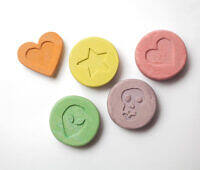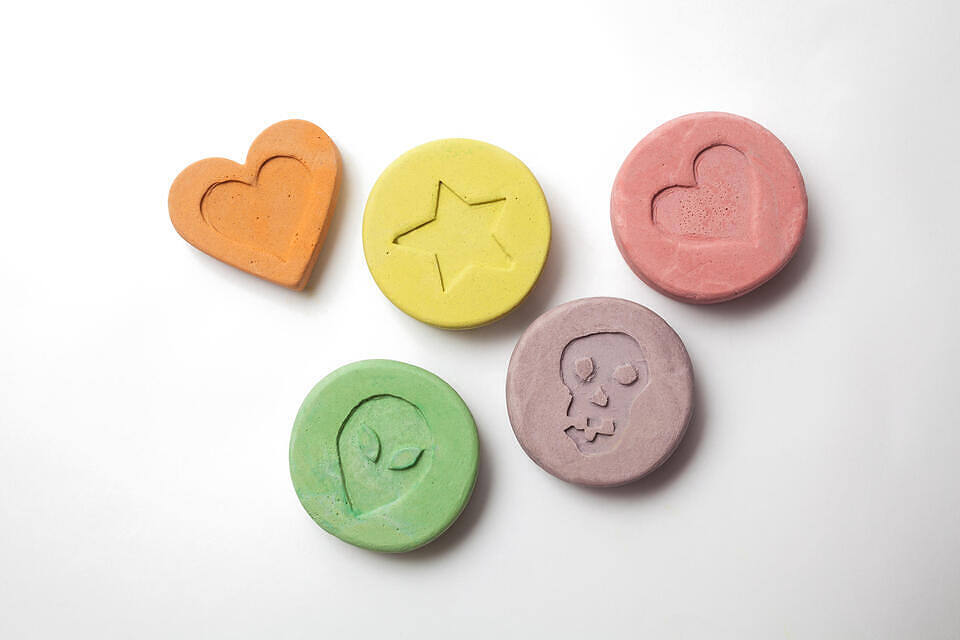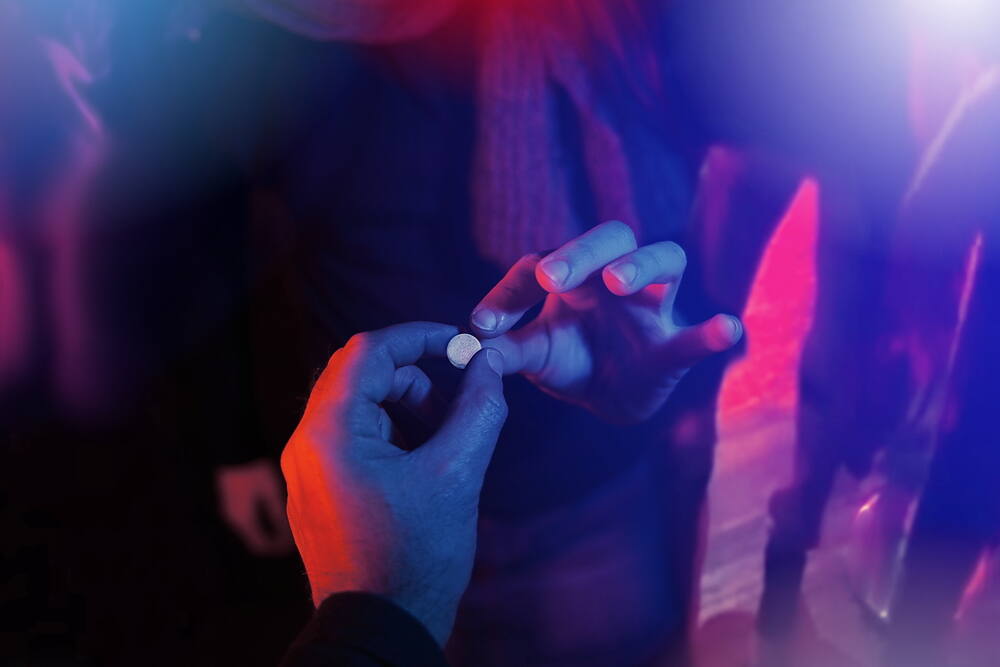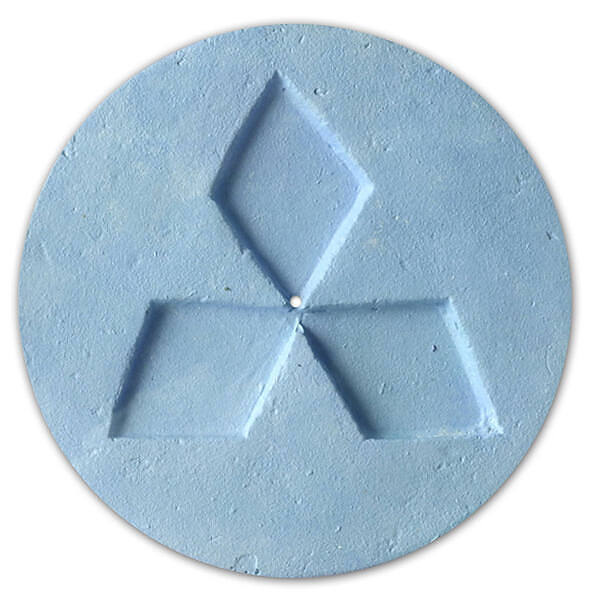
MDMA/Ecstasy Addiction
What Is Ecstasy?
Ecstasy is an addictive illicit drug that contains the active component MDMA (3,4-methylenedioxymethamphetamine). It is a psychoactive stimulant that also has hallucinogenic properties.
Ecstasy is an illegal Class A synthetic (humanmade) drug. Although it is classed as a stimulant drug, it can also have hallucinogenic effects. MDMA ecstasy Molly, Mandy are alternative names for the drug, which is the white powder, crystal-like version of the drug, unlike the tablet or pill that is identified as ecstasy.
There are many pills or tablets, and they usually carry a trademark stamp. With the appearance of sweets or tablets, they often have a harmless impression, but this is far from the truth. Ecstasy has been found to be contaminated or cut with:
- Cocaine
- LSD
- Heroin
- Fentanyl
- Amphetamine
- Caffeine
- Rat poison
Due to the drugs that are often mixed with ecstasy, addiction and dependence are very real possibilities. By itself, it creates very real drug cravings that can lead to a heavy abuse problem or addiction.

Street Names and Slang Terms are:
Dolphins, Doves, Brownies, E, Eckies, Edward, Tulips, X, XTC, M & Ms, Mitsubishi’s, Sweeties, Tulips, Teddy Bears, Superman, Fantasy, New Yorkers
Ecstasy has been popular with the music and rave scene since the early 1980s, but in recent years there has been a notable rise in the number of related deaths in England and Wales. (1)
Purity levels within pills have risen considerably – up to 60 per cent in some cases. Other dangerous Class A drugs are also often mixed to make the pills stronger. The effects last longer, and individual brands are more popular. (2)
Popping an ecstasy pill today is a game of Russian roulette – you have no idea which tablets are potentially lethal and which are safe.
If you or a loved one are struggling with the effects of Ecstasy, we urge you to seek professional treatment without delay. Detox Plus UK is here to help you access reputable evidence-based treatment for addiction so that party drugs don’t have to ruin or threaten your life.
How Ecstasy Is Taken
The Global Drugs Survey reported in 2017 that the most common route of administration was oral, with 90% of users administering the drug this way whilst the rest snorted it.
The Law On Ecstasy In The UK
Ecstasy is a Class A illegal drug in the UK, under the Substance Misuse Act 1971. Possession of these drugs can carry a penalty of up to 7 years in prison and an unlimited fine, or both.
Supply and production can carry up to a life term in prison, an unlimited fine, or both.
Driving whilst under the influence carries the same penalties as drunk driving. this drug can seriously impair your decision-making skills, motor skills, sensory perception and reaction. (3)
What Taking Ecstasy Feels Like
Effects can take between 20 minutes and 60 minutes after ingestion to take effect, longer if you have a full stomach.
Many overdoses happen when an individual takes another pill before the initial dose has kicked in. They make the fatal mistake of thinking that the pill hasn’t worked when the onset of its effects is slower or delayed. The drug has been linked with fatalities and can affect long-term health.
Side effects:
When it works well, the effects will make you feel:
- Euphoric
- An enhanced sense of wellbeing and happiness
- An Increased sense of confidence
- Experience a reduction in inhibitions
- Emotional empathy towards others
- Emotional warmth towards others
- A change in sensory perception
- Have increased levels of energy
When it goes wrong, it can go horribly wrong and can make you feel:
- Anxious
- Panicky
- Paranoid
- Unbearably warm with increased blood pressure and heart rate
- Abnormally thirsty
- Severely dehydrated
- Clench your jaw repeatedly (gurning)
- Experience terrifying hallucinations
- Suffer seizures and loss of consciousness (4)
 Ecstasy users appear to feel extremely sensual, which motivates many users to kiss, touch, embrace or hug others. However, it is really not a very sexual drug, and it is common for male users to be impotent while high. Several days after use, users often feel different unfavourable effects. As ecstasy releases serotonin from the brain, it can take days for serotonin to attain average levels again. Throughout this time of the reduction, users often encounter symptoms very opposite to the feeling of ecstasy, including sadness and depression. (5)
Ecstasy users appear to feel extremely sensual, which motivates many users to kiss, touch, embrace or hug others. However, it is really not a very sexual drug, and it is common for male users to be impotent while high. Several days after use, users often feel different unfavourable effects. As ecstasy releases serotonin from the brain, it can take days for serotonin to attain average levels again. Throughout this time of the reduction, users often encounter symptoms very opposite to the feeling of ecstasy, including sadness and depression. (5)
Many tablets sold include little to no MDMA and likely large doses of dangerous new chemicals. The contamination seems to be even more widespread in the US as the new most familiar form is now powder called “Molly” in the US and “Mandy” in the UK, which can be blended at any level—by the manufacturer or any dealer on the way.
MDMA Ecstasy – The Risks
The main risk associated with taking ecstasy is not knowing what is in the drug or its purity levels.
There have been numerous police reports of super-strength ecstasy pills in circulation in the UK. Taking even half of one of these pills could prove fatal.
There has been a definite trend in drug deaths in the UK over recent years. Drugs have gotten stronger, purer and cheaper. This combination makes taking drugs today highly risky, and abuse is no exception.
Some users have bad experiences. This may involve appearing anxious and panicky, confusion and unpleasant feelings that may, in some way or other, last for days, even weeks. This is more common if users take high doses or are already feeling anxious.
Drug-related deaths have seen a rise again in recent years – similar to the early years of the 20th century when there was a renewed interest in the drug amongst the younger generation. (6)
The Dangers Associated With Ecstasy Addiction – What You Need To Know
- In the past four years, there have been a total of 226 ecstasy-related deaths recorded in England and Wales. Around half of those deaths were teenagers and young adults, tragically having their life cut short by this popular party drug.
- Most individuals access the drug from friends and relatives or someone at a party. Mixing with alcohol or other drugs only heightens the risks of overdose and death.
- Chronic use can actually alter the biochemical pathways in the brain, resulting in permanent brain damage, mental health illness and addiction.
- In comparison to other Class A drugs such as cocaine and heroin, the comparable number of deaths attributed to addiction is relatively low. However, this does not mean it is not dangerous.
- Most deaths related to abuse result from recreational use of the drug and not necessarily from addiction. It only takes one bad pill for a day or night out to take a devastating turn of events.
- Whilst under the influence, you are more prone to accidents, hurting yourself, and not realising, as pain perception changes.
- The effects of ecstasy also change your perception of danger. This could lead you into bad situations where physical assault, sexual abuse or rape can occur.
Ecstasy Addiction
Addiction to ecstasy occurs when you lose control of your consumption. This arises from the hunger to use the drug constantly to induce effects of excitement, high energy, euphoria, and increased self-esteem. As an addict, you’ll continue to use the drug despite understanding the dangers that come with it.
The Signs of Addiction
If you are worried a family member or loved one may be using the drug, look out for small coloured pills that resemble sweets in their possession. Ecstasy pills often have imprints of logos or characters on them, representing the particular brand of the pill. Pills also come in an array of different colours.
Mitsubishi is a popular brand of pill and, like other brands, comes in different shapes and colours. Occasionally ecstasy is also used in liquid, capsules or powder form.
Signs and symptoms of addiction use include:
- Irregular sleep pattern, i.e. awake and partying all night and sleeping during the day
- Promiscuous behaviour
- A change in social circle
- Regularly attending raves and parties
- Suffering physical harm and not realising until the effects of the drug have worn off
- Reduced appetite
- Mood swings
- Loss of interest in old friends, family and hobbies
- Anxiety and depression
- Lack of awareness of pain
- Acting unusually friendly and happy
- Abnormally high levels of energy
- Dilated pupils
Ecstasy is a very addictive drug. Cravings for the drug start as soon as the comedown begins- causing serotonin and dopamine levels to crash.
If you spot the signs and symptoms of abuse in a loved one, it is important not to dismiss it as a phase or as a harmless drug. It can cause addiction, and it only takes one pill to end someone’s life.
Encourage your loved ones to talk to you openly about their drug use to gauge if they have a problem. If your loved one is showing signs of addiction, and there has been a notable change in their behaviour, encourage them to seek addiction treatment without delay.
How Long Does MDMA Stay in Your System?
How long MDMA stays in your system is dependent on several personal factors, the main factors being:
- Your body mass index
- The amount of the drug taken can affect how long it will remain in the system.
- The use of multiple drugs can affect the length of time that any single drug remains in an individual’s system. For instance, using MDMA with alcohol, a common practice will result in the liver giving priority to metabolising alcohol before it metabolises any other substances. This could extend the length of time that it would remain in the system.
- Your age and gender
- Genetic factors can also affect the rate at which specific drugs are metabolised.
As a general guide, the drug can stay in your system for 3-4 days with light to moderate use. MDMA can be detected in urine for 3-4 days after consumption and 1-2 days in blood. Hair strand tests can detect traces of MDMA for up to 3 months or longer.
Chronic use of MDMA can cause addiction, and a build-up in the body can take weeks, if not months, to be eliminated from your system.
Ecstasy Abuse
Ecstasy abuse is no different from the abuse of any other drug. As this drug is an illegal Class A drug, any use is considered drug abuse.
However, it is important to recognise that there are different levels of drug abuse and whilst some may abuse the drug purely on a recreational basis, others will take it more frequently, take multiple pills and mix it with alcohol or other drugs.
Basically, the more you take, the greater chance you have of suffering negative consequences and becoming addicted.
When we speak of negative consequences, they can range from mild – regular comedowns and perhaps fallouts with friends and relatives to severe – loss of mental health, relationship breakdowns, loss of jobs, severe financial consequences, sexual consequences such as abuse or rape whilst intoxicated, physical harm and even death.
If you are suffering negative consequences as a result of your drug-taking, it is important to seek professional addiction treatment.
Is MDMA addictive?
As MDMA is a drug that is mostly used recreationally and classed as a “Club Drug“, recognising an addiction can be difficult because the drug lacks obvious withdrawal symptoms and is often used by young adults in social settings. However, sustained use can lead to psychological and physical dependence.
Some individuals find themselves continuing to take the drug despite mounting negative consequences long after the party has finished.
Stopping abuse can prove very difficult, but staying stopped where there is an addiction present can prove impossible without professional addiction treatment .
What are examples of club drugs?
Free Treatment For Ecstasy Addiction
If you need free drug treatment for addiction, we recommend that you contact your local drug and alcohol services for support and treatment in the community.
Also, it will be helpful to speak to your GP regarding any mental or physical health concerns you have. They can then make the appropriate referrals and arrange any relevant tests and treatments.
Narcotics Anonymous and UK SMART Recovery offer self-help groups and meetings that can usually be accessed locally to where you live. Both offer structured support for drug addiction and help you to quit drugs successfully.
Private Addiction Treatment For Addiction
If you or a loved one have an addiction and want help to stop it, Detox Plus UK can advise you on the best private rehab treatment options available in the UK.
We only work with reputable CQC registered drug rehab clinics; that specialise in treating all manner of drugs, including party drugs and club drugs. If you have an addiction, professional drug rehab’s nurturing and recovery-focused environment is the best treatment option available.
Undergoing a drug rehab programme for addiction offers the following benefits:
- 24/7 support from doctors, nursing staff, therapists, counsellors and support workers
- A full medical detox for any drug addiction and dependence identified
- A safe, drug-free environment in which to recover from drug addiction
- Evidence-based addiction treatments aimed at unearthing and healing the root causes of addiction
- A drug rehabilitation programme tailored to each patient’s individual treatment needs
- Professional, personalised treatment for dual diagnosis patients
- A comprehensive recovery programme to enable patients to stay drug-free on leaving rehab
The vast majority of addiction rehabs that we work with also provide free ongoing support for families and free aftercare for their patients. Detox Plus UK can also arrange same day rehab admissions for those in urgent need.
For more information on the benefits of drug rehab, details of the treatments involved and the associated costs, please call and speak to us today.
Sources:
(2) https://www.drugwise.org.uk/why-do-people-die-after-taking-ecstasy/
(3) https://www.nidirect.gov.uk/articles/drugs-and-crime
(4) https://www.talktofrank.com/drug/ecstasy
(5) https://www.drugabuse.gov/publications/drugfacts/mdma-ecstasymolly
(6) https://www.ncbi.nlm.nih.gov/pmc/articles/PMC81503/
National Institute on Drug Abuse
Narcotics Anonymous UK
Smart Recovery UK
Verywellmind.com



